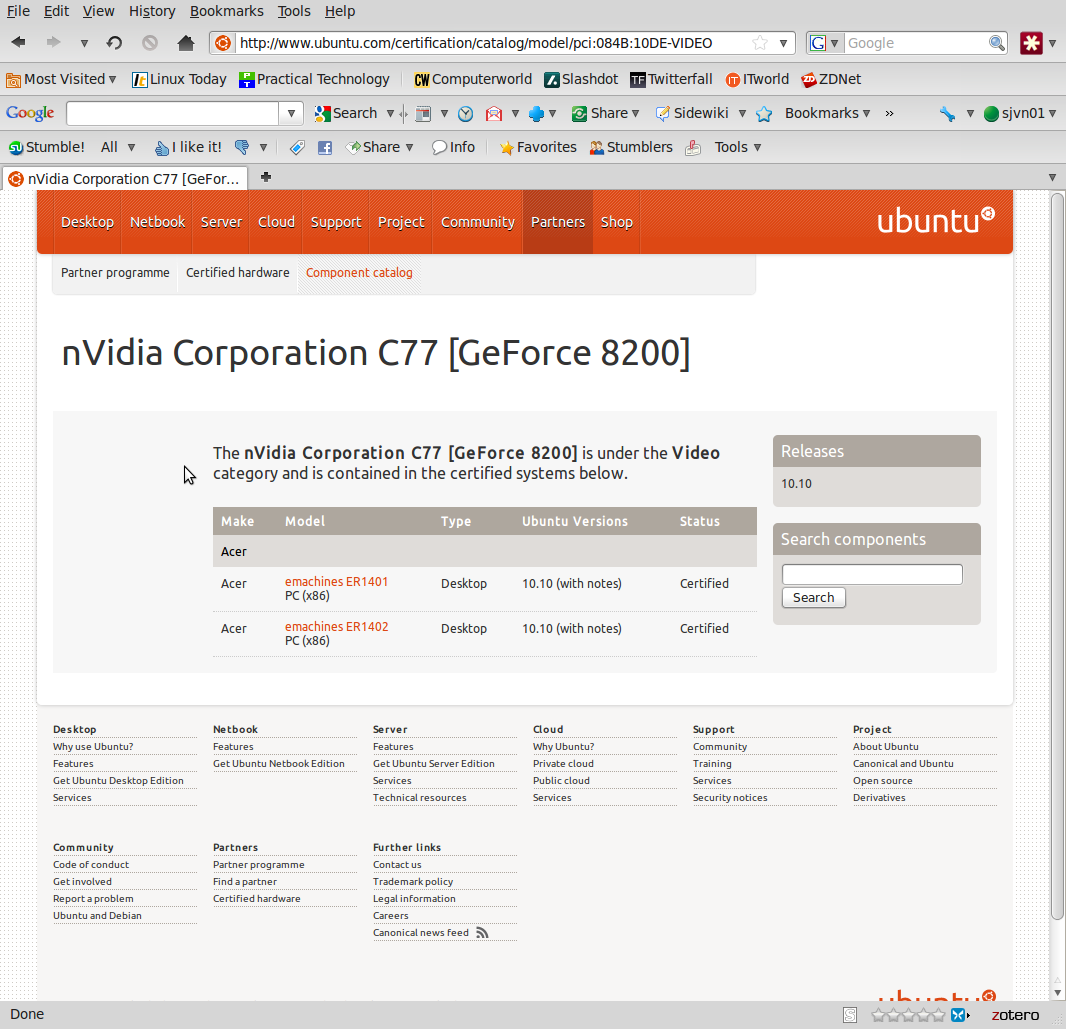Canonical releases Component Catalog for Ubuntu & Linux


That's good news. It means Original Design Manufacturers (ODMs) working on Ubuntu or Linux notebooks and PCs can much more quickly design systems that they can be sure will work with Linux and Ubuntu in particular.
The catalog presents ODMs and OEMs with a selection of over 1,300 certified components from 161 manufacturers. The database laid out both by vendor, and by type of component. With the former you can quickly see, for example, what ATI, NIVIDIA, and Broadcom have to offer, and with the latter you can find out who's offering Linux-certified Integrated Drive Electronics (IDE), USB and touch interfaces. You can also search the catalog for specific equipment.
In a statement, Victor Palau, Platform Services Manager at Canonical said, "There has not been a comprehensive, up-to-date freely available catalog like this for a long time. By making this open and easily searchable we want to speed the component selection for Ubuntu machines, and allow us and our partner manufacturers to focus on the value-added user experience."
According to Ubuntu, with this database, "corporate buyers can specify the design of their Ubuntu desktops or servers from manufacturers much more efficiently. Individuals can be sure that the key components of the machine they are considering will work with their preferred Ubuntu or Linux distribution. The PC and server industry will also have a simple single source to publicize the work that they do in certifying Linux components and making that knowledge freely available."
In addition, Canonical has also released a listing of Ubuntu certified complete PCs, laptops and servers.
While this new catalog is handy, it leaves me wanting more. It would be great if say the Linux Foundation could put together a comprehensive list from not just Canonical but all the major Linux distributors, such as Red Hat and Novell, and the hardware members of the Linux Foundation like Intel, NEC, and Qualcomm. What Canonical has done is useful. A comprehensive vendor-neutral catalog would be even better.